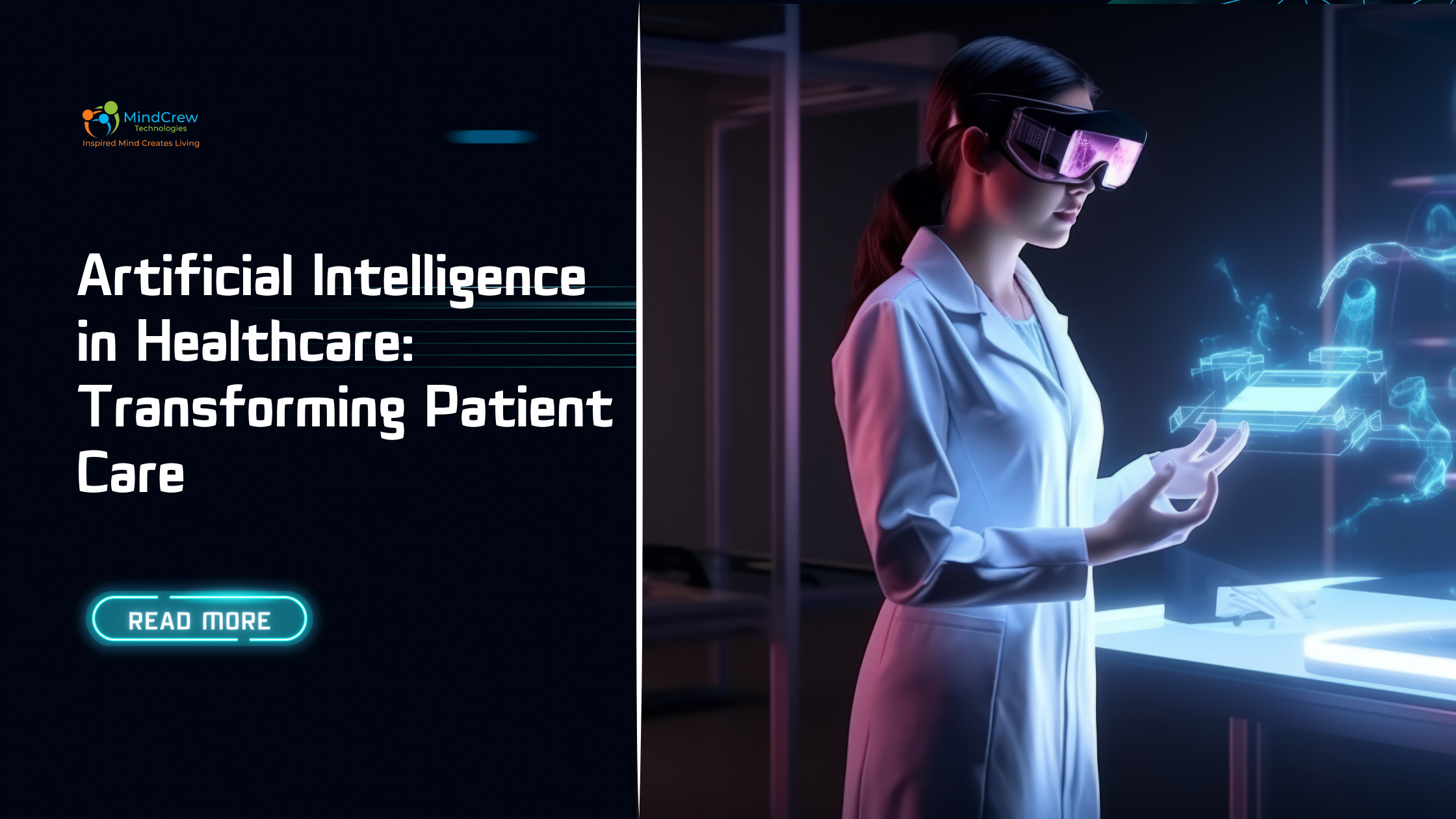Artificial Intelligence in Healthcare: Transforming Patient Care
Artificial Intelligence (AI) is no longer a futuristic concept; it is a present reality transforming various industries, with healthcare being a significant beneficiary. The integration of AI into healthcare has revolutionized patient care, bringing about improvements in diagnostics, treatment, patient monitoring, and administrative processes. This comprehensive guide delves into the various aspects of AI in healthcare, exploring its applications, benefits, challenges, and future prospects.
Introduction to Artificial Intelligence in Healthcare
Artificial Intelligence refers to the simulation of human intelligence in machines programmed to think and learn like humans. In healthcare, AI encompasses a variety of technologies such as machine learning (ML), natural language processing (NLP), robotics, and computer vision. These technologies analyze complex medical data, assist in clinical decision-making, and improve patient outcomes.
Applications of AI in Healthcare
- Diagnostics and Imaging
- Medical Imaging Analysis: AI algorithms can analyze medical images with remarkable accuracy, identifying patterns and abnormalities that might be missed by human eyes. For instance, AI systems can detect early signs of diseases such as cancer, cardiovascular conditions, and neurological disorders through X-rays, MRIs, and CT scans.
- Predictive Analytics: AI can predict disease progression and patient outcomes by analyzing historical data and identifying risk factors. This allows for early intervention and personalized treatment plans.
- Personalized Medicine
- Genomics: AI analyzes genetic information to identify mutations and genetic markers associated with diseases. This information can tailor treatments to an individual’s genetic profile, enhancing the effectiveness of therapies.
- Drug Development: AI accelerates the drug discovery process by identifying potential drug candidates and predicting their success rates. This reduces the time and cost involved in bringing new drugs to market.
- Robotics in Surgery
- Surgical Assistance: Robots equipped with AI can assist surgeons by providing precise movements, reducing the risk of human error, and enhancing the precision of surgical procedures. These robots can perform minimally invasive surgeries, leading to faster recovery times for patients.
- Remote Surgery: AI-powered robots enable surgeons to perform surgeries remotely, providing access to expert care in regions lacking specialized medical professionals.
- Patient Monitoring and Care
- Wearable Devices: AI-powered wearable devices monitor patients’ vital signs, detect anomalies, and alert healthcare providers in real-time. This continuous monitoring helps in managing chronic conditions and preventing medical emergencies.
- Virtual Health Assistants: AI-driven chatbots and virtual assistants provide patients with medical advice, appointment reminders, and medication management, enhancing patient engagement and adherence to treatment plans.
- Administrative Efficiency
- Streamlining Operations: AI automates administrative tasks such as appointment scheduling, billing, and insurance claims processing. This reduces the administrative burden on healthcare providers and allows them to focus more on patient care.
- Electronic Health Records (EHRs): AI improves the management of EHRs by organizing and analyzing patient data, identifying trends, and providing actionable insights to healthcare professionals.
Benefits of AI in Healthcare
- Improved Diagnostic Accuracy AI algorithms analyze vast amounts of medical data with high accuracy, reducing diagnostic errors and ensuring timely and accurate diagnoses.
- Enhanced Patient Outcomes By providing personalized treatment plans and continuous monitoring, AI enhances patient outcomes and improves the quality of care.
- Cost Reduction AI reduces healthcare costs by automating administrative tasks, accelerating drug discovery, and enabling preventive care through early diagnosis and intervention.
- Increased Access to Care AI-powered telemedicine and remote monitoring tools provide access to healthcare services in remote and underserved areas, bridging the gap in healthcare accessibility.
- Efficient Resource Utilization AI optimizes the allocation of healthcare resources, ensuring that medical professionals, equipment, and facilities are used efficiently and effectively.
Challenges of AI in Healthcare
- Data Privacy and Security The use of AI in healthcare involves the collection and analysis of sensitive patient data. Ensuring the privacy and security of this data is crucial to prevent breaches and maintain patient trust.
- Regulatory and Ethical Concerns The deployment of AI in healthcare raises ethical concerns regarding patient consent, data ownership, and the potential for biased algorithms. Establishing clear regulatory frameworks and ethical guidelines is essential.
- Integration with Existing Systems Integrating AI technologies with existing healthcare systems and workflows can be challenging. Ensuring seamless interoperability and compatibility is necessary for the successful adoption of AI.
- High Implementation Costs The initial cost of implementing AI technologies can be high, posing a barrier for smaller healthcare providers and institutions with limited budgets.
- Lack of Standardization The lack of standardized protocols and guidelines for AI applications in healthcare can lead to inconsistencies in implementation and outcomes.
Future Prospects of AI in Healthcare
- Advancements in AI Technologies Continuous advancements in AI technologies will enhance their capabilities, making them more accurate, efficient, and versatile. This will open up new possibilities for AI applications in healthcare.
- Integration with Other Technologies The integration of AI with other emerging technologies such as the Internet of Things (IoT), blockchain, and 5G will further revolutionize healthcare, enabling more connected, secure, and efficient systems.
- Expansion of AI Applications The scope of AI applications in healthcare will continue to expand, covering areas such as mental health, elderly care, and rehabilitation. AI will play a crucial role in addressing the unique challenges in these areas.
- Global Health Impact AI has the potential to transform global health by addressing disparities in healthcare access, quality, and affordability. It can support healthcare systems in developing countries and provide solutions for global health challenges.
- Collaboration and Innovation Collaboration between healthcare providers, technology companies, researchers, and policymakers will drive innovation in AI applications. This collaborative approach will ensure that AI technologies are developed and deployed in a manner that maximizes their benefits while addressing ethical and regulatory concerns.
Conclusion
Artificial Intelligence is undeniably transforming patient care by improving diagnostics, personalizing treatments, enhancing patient monitoring, and streamlining administrative processes. While challenges such as data privacy, ethical concerns, and high implementation costs need to be addressed, the benefits of AI in healthcare are immense. The future of AI in healthcare is promising, with advancements and innovations set to revolutionize the industry further. As AI continues to evolve, it will play a pivotal role in enhancing the quality, accessibility, and efficiency of healthcare, ultimately improving patient outcomes and transforming the way healthcare is delivered.







